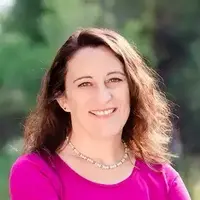Finding the Silver Lining: Positive outcomes from the pivot to virtual for instructor professional development and teaching resources in classroom and field geoscience
Authors
 Beth Pratt-Sitaula, EarthScope
Beth Pratt-Sitaula, EarthScope
 Becca Walker, Mt. San Antonio College
Becca Walker, Mt. San Antonio College
 Bruce Douglas, Indiana University-Bloomington
Bruce Douglas, Indiana University-Bloomington
 Ben Crosby, Idaho State University
Ben Crosby, Idaho State University
 Sharon Bywater-Reyes, University of Northern Colorado
Sharon Bywater-Reyes, University of Northern Colorado
 Donna Charlevoix, EarthScope Consortium
Donna Charlevoix, EarthScope Consortium
GETSI (GEodesy Tools for Societal Issues) is an NSF-funded program that develops and disseminates data-rich and societally relevant curriculum for undergraduate field and classroom teaching (serc.carleton.edu/getsi). The original 2020-21 dissemination plan was entirely in-person workshops. After the COVID19 pandemic onset, the project pivoted to an online dissemination model and convened a mini short course series (n=324) and two virtual field teaching short courses (n=31) and collaborated on the development of a two-week remote field course (n=24).
The "Virtual Mini Short Course Series" (October 2020-April 2021) included nine 2-hour mini-courses, each devoted to one GETSI module. Unlike a webinar, the majority of the mini-course consisted of time for participants to work individually and collaboratively through portions of the student exercises, discuss teaching ideas and develop a plan for implementation. They included a variety of active learning strategies including think-pair-shares, polling, report-outs, gallery tours, and jigsaws. The series attracted a wider range of participants from a broader range of institutions than many in-person events. Participants could choose to attend one or more of the mini-courses, depending on their area(s) of interest. Participants could earn a small stipend for completing an implementation plan for using GETSI.
The two virtual short courses "Teaching in the Field with SfM and GPS" brought together graduate students and college/university faculty into an online learning cohort. Each institutional team received GPS survey receivers to practice with for several weeks and the cohort worked through similar field tasks separately, while periodically reconvening online to share challenges and accomplishments. Six of the 14 participating institutions have subsequently taught with the same equipment. The remote field course "Using High-Resolution Topography to Understand Earth Surface Processes", taught by Bywater-Reyes, used jointly collected prepared data sets and adapted GETSI field modules and related materials to a remote delivery mode.
